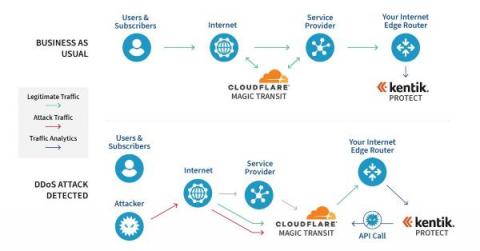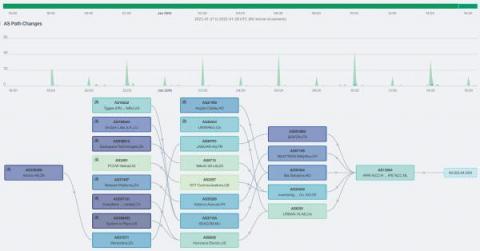Working with Cloudflare to mitigate DDoS attacks
The rolling thunder of cybersecurity warnings has built to a crescendo this year. According to HelpNetSecurity, cybercriminals launched over 9.75 million DDoS attacks in 2022. The Cloudflare Attack Trends 2022 Q1 Report published yesterday shows an alarming increase in application-layer DDoS attacks. And our own Doug Madory has been sharing analysis on the impact of cyberattacks, too.










